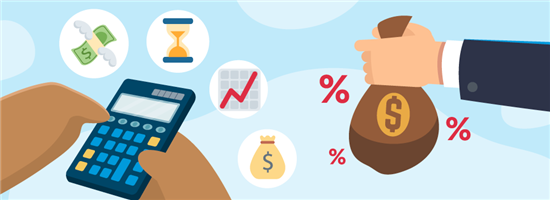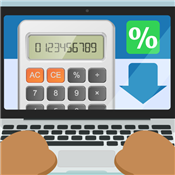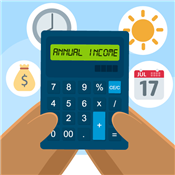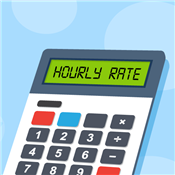Payment Calculator
Need to know how to calculate your monthly loan payments? Here's a calculator to help you out.
 |
Knowing how much you need to pay per period has many benefits. It can help you budget, plan your finances, avoid default, manage interest, and compare loan options.
Most importantly, it gives you peace of mind. This helps you clearly understand your financial obligations, reducing stress and anxiety in the process.
Unfortunately, calculating loan payments isn't as simple as dividing the amount you borrowed by the time you must repay it. To help you out, here are two loan payment calculators to simplify the process.
How to Use the Loan Payment Calculator
Which calculator to use will depend on the type of loan plan you have.
The Fixed Term calculator is for those looking to find out how much they have to pay per period to fully pay off their loan. Here's how to use it:
- Enter your loan amount.
- Input the annual interest rate of your loan.
- Specify the loan term (in years and months).
- Select a payment frequency from the dropdown menu.
From there, click "Calculate." You should now see your periodic loan payment. You'll also see your total payment from the loan (interest and principal) and an amortization schedule.
The Fixed Payment calculator is for those who want to know how long it'll take them to pay off the loan that they currently have. Here's how to use it:
- Enter your loan amount.
- Input the annual interest rate of your loan.
- Specify how much you pay per period.
- Select a payment frequency from the dropdown menu.
Click "Calculate" from there and it should show you how long it'll take you to fully repay your loan.
What Is a Fixed Term Loan?
Fixed term loans are loans that you have to repay within a certain date (e.g. having to fully repay a loan within 5 years).
These types of loans follow a uniform payment schedule in which you have to pay the same amount every pay period—monthly, quarterly, annually, etc. A portion of the payment is applied to the interest, while the rest is applied to the principal.
Most loans, like mortgages and auto loans, tend to be fixed-term. Mortgages, in particular, usually have to be paid within 10 to 30 years. The longer the loan term is, the lower your periodic payments will be.
What Is a Fixed Payment Loan?
Fixed payment loans are loans wherein you agree to make regular payments of a pre-determined amount until the loan is paid off, no matter how long it takes.
Let's say you agree to pay $200 monthly for your loan. You'll have to keep paying that amount until the loan is fully paid off, whether it takes 3 or 5 years.
In that scenario, a portion of your monthly $200 pays off the interest, and the remainder reduces the principal amount borrowed.
Factors That Influence Loan Payments
Three main factors influence your loan payments:
- Principal (or loan amount)
This refers to the original amount of money you borrowed. - Loan term
This is the amount of time you have to repay your loan. - Interest rate
Consider this as the cost of borrowing money. It's usually expressed in terms of APR (annual percentage rate).
Both the principal and interest rates directly affect your loan payments. The higher the principal, the higher your loan payments.
The same goes for the interest rate. Let's say a $10,000 loan (principal) has an interest rate of 5.50%. This will have lower periodic payments compared to one with the same principal but with an interest of 6.6%.
The loan term has an inverse effect on your loan payments. The longer the term, the lower your payments will be. Just be mindful that long loan terms will have higher interest rates. This is due to the extended period.
Understanding the Amortization Schedule
The amortization schedule is a table that shows your periodic loan payments. It shows how much each payment is being applied to the interest and principal balance. This can help you set a budget for your loan payments.
Early in the amortization schedule, you may see a large chunk of your payments applied to the interest. As the principal balance decreases, so do your interest payments.
Later in the schedule, a larger portion of your payments will be applied to the principal. By the end of the schedule, the principal balance should zero out. This signifies that your loan is fully repaid.
Bottom Line
Loan payment calculators are easy-to-use tools that can help you calculate loan payments. There are two calculators you can use:
- The Fixed Term Calculator can help you if you need to know how much you have to pay per pay period.
- The Fixed Payment Calculator can help you figure out how long it'll take to pay off your loan.
With these calculators, you can properly plan out your budget and finances. Following the amortization schedule provided could help you fully repay your loan before the term ends.
|
|
| ||||||
|
|
|











